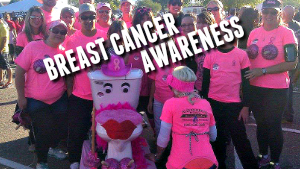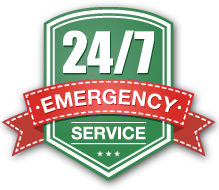
October is a month that’s known for many things: Halloween costumes, enormous candy consumption, fall weather and the final countdown before the holidays. It’s also Breast Cancer Awareness Month, a month that’s meant to bring attention to this type of cancer that effects both men and women.
According to the website for the National Breast Cancer Foundation, Inc., breast cancer is a disease in which malignant (cancer) cells form in the tissues of the breast. Pretty straight forward, right?
The site also states that one in eight women will develop breast cancer in their lifetime, and it was estimated that this year 2,620 men would be diagnosed with breast cancer this year. It was also estimated that 276,480 new cases of invasive breast cancer would be diagnosed in women this year in the U.S.
Risk Factors That Contribute To Developing Breast Cancer
There’s a list of varying risk factors, but those factors don’t mean that you will get breast cancer. Such risk factors include:
- Age – the older you are, the more likely you are to develop breast cancer,
- Late Menopause – the risks go up in women who enter menopause after age 55,
- Alcohol – consuming 2-3 drinks daily increases the rate about 20%,
- Birth control – current or recent use increase the risks,
- Bone density – women with a higher bone density are at a much higher risk than those with low bone density,
- Family history – having a first-degree relative (such as a parent, sibling or offspring) with ovarian cancer increases the breast cancer risk. Also, having a first-degree male relative with prostate cancer increases the risk for breast cancer,
- Race & Ethnicity – overall, Caucasian and African American women have the highest incidence rate of breast cancer.
These are just a short collection of risk factors. To see the full list, check out ww5.komen.org and for more information.
How To Lower Your Breast Cancer Risk
What can you do to lower your chances? It can start at home with a breast exam you can perform on yourself. This is a crucial aspect to early detection. If you find a lump in your breast, the next step would be to see your doctor. They can perform any necessary tests to see if this is something to be worried about or not. One other thing that many women choose to do is have a BRCA gene test performed.
You’ve heard of the term BRCA, but what does it mean? It’s an abbreviation for “BReast CAncer gene.” Every person has both the BRCA1 and BRCA2 genes, but these do not cause or indicate breast cancer. What they actually do is to help repair DNA breaks that can lead to cancer and the uncontrolled growth of tumors. They’re also known as tumor suppressor genes. You can learn more about the BRCA genes at www.nationalbreastcancer.org.
But there is good news in all of this. There are over 3.5 million breast cancer survivors in the U.S.! This can be attributed to anything from early detection to treatment to advances in modern medicine.
How Is ABQ Plumbing Helping During Breast Cancer Awareness Month?
The team with Albuquerque Plumbing Heating & Cooling is proud to support the Susan G. Komen Foundation and women who have been diagnosed with and have survived breast cancer. You can help support breast cancer patients and survivors by donating to either the National Breast Cancer Foundation, the Susan G. Komen Foundation or any other reputable breast cancer non-profit. A little goes a long way, and together we can help in the fight against breast cancer.



